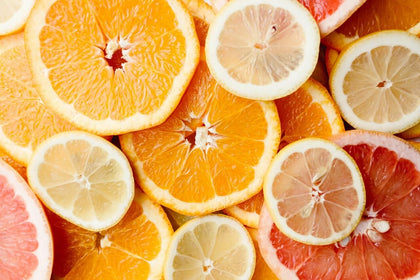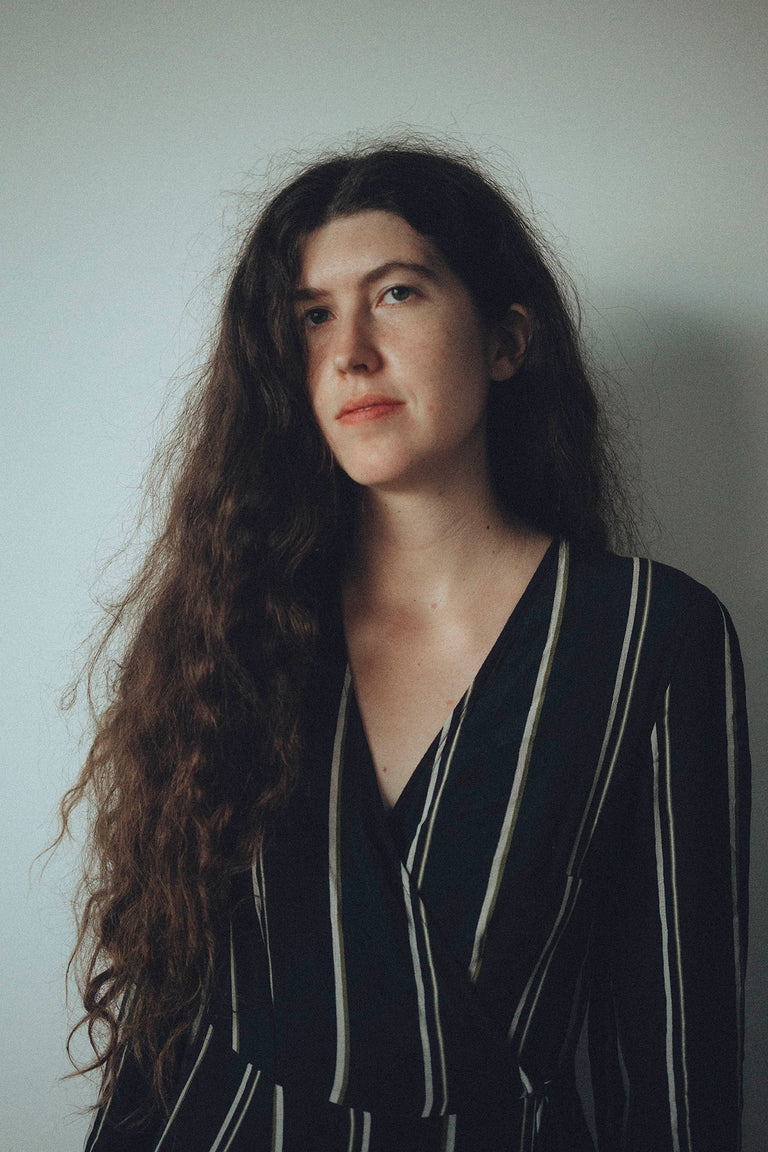We know that hair health starts from the outside in, and that hair loss is linked to factors like stress and nutritional deficiencies, which makes caring for your body as important as the products you use on your hair.
There's one nutrient in particular that's been getting a lot of buzz for its hair health-boosting effects: vitamin C. But does vitamin C actually encourage hair growth? We talked to our experts to find out. Plus, discover the best products to promote holistic hair growth from the outside in.
#include-related-slider#
What Is Vitamin C and Why Is It Important?
Let's start with the basics. What is vitamin C, and how does it affect hair growth?
"Vitamin C, or ascorbic acid, is a water-soluble vitamin derived from glucose metabolism," said clinical dermatologist and researcher Dr. Enrizza P. Factor. "It is a potent antioxidant preventing the oxidation of low-density lipoproteins and free radicals, which can cause damage."
Vitamin C supports energy production while also minimizing free radical damage, which makes this important vitamin essential to your overall health. Dr. Factor says that vitamin C's primary role in supporting a holistic beauty regime is the ways in which it supports collagen production. This is why some beauty experts call it the "skin vitamin."
"It also acts as a reducing mediator necessary for collagen fiber synthesis through hydroxylation of lysine and proline," she says, meaning that vitamin C works within your body to create the collagen production necessary to support the growth of healthier hair and skin by breaking down essential amino acids into a usable form. The vitamin C your food contains is critical in supporting your body's growth processes for new strands, while keeping existing hair growth healthy.
Vitamin C helps support the healthy functions of the body, which might include working to promote hair growth by helping the body absorb key nutrients.
"Vitamin C plays an essential role in the intestinal absorption of iron due to its chelating and reducing effect, assisting iron mobilization and intestinal absorption," Dr. Factor explains. "Therefore, vitamin C intake is important in patients with hair loss associated with iron deficiency. "
However, this link doesn't mean that having low levels of vitamin C on its own can explain hair shedding.
"Although vitamin C deficiency is typically associated with body hair abnormalities, there is no data correlating vitamin C levels and hair loss," says Dr. Factor.
Read: How to Clean Hair Brushes
Benefits of Vitamin C For Your Hair
The idea that vitamin C improves hair growth may be a myth, but that doesn't mean this essential hair vitamin isn't a key part of a healthy diet.
"Vitamin C can improve hair growth, fight dandruff, stop hair loss, and lead to thicker hair,” claims Dr. Factor, "while a deficiency can cause split ends."
So, how does it work? "Vitamin C helps your body absorb iron, a mineral necessary for hair growth," said Dr. Factor. Since iron deficiency can be a key component of hair loss, this vitamin is an essential component of your overall hair wellness. Making sure you're consuming enough vitamin C might help support the functionality of your scalp and the strength of your strands.
Ingesting the proper amount of vitamin C helps your epidermal stem cells function, as well as the cells at your hair follicles that help regulate growth. "Free radical damage can block growth and cause your hair to age," says Dr. Factor. "Vitamin C is a powerful antioxidant that helps protect against the oxidative stress caused by free radicals."
Not only is vitamin C an essential nutrient, but it also aids in collagen production. "Your body needs vitamin C to create a protein known as collagen — an important part of hair structure," Dr. Factor explains. Making sure you're consuming healthy levels of vitamin C will help keep your collagen production on track. Since your body's collagen levels start dropping around the age of 25, getting extra nutritional support for the production of this key protein is crucial for keeping your hair healthy as you age.
Read: A Beauty Editor's Inside-Out VEGAMOUR Routine for Hair Wellness
How To Use Vitamin C For Hair Growth
While it might not be the hair growth secret that some people make it out to be, there's no doubt that ensuring you're getting proper levels of vitamin C in your diet is seriously good for your body and your hair.
Here are some great ways to make sure your body is getting the support it needs:
Balance Your Diet
Step one in addressing a vitamin C deficiency? Dr. Factor says that making sure you're eating a balanced, well-rounded diet is the best place to start.
As with any essential vitamin, eating the rainbow is the best way to make sure your body is getting the vitamin C it needs. "Food is the best source of the vitamins you need for hair growth," she says. "Humans are naturally deficient in an enzyme called l-gulonolactone oxidase that is required for vitamin C synthesis, and should therefore take vitamin C through their diet."
So what are some good vegan sources of vitamin C you can add to your diet? Dr. Factor suggests the foods below, which have "particularly high concentrations of vitamin C."
- Citrus fruits, including lemons, oranges, grapefruits, and any other citrus you love
- Potatoes
- Tomatoes
- Bell peppers
- Green peppers
- Cabbages
- Strawberries
- Guava
Your body works best when you're getting all the nutrients it needs on a reliable, daily basis. "Eating the rainbow," and making sure you get plenty of nourishing servings of fruit and vegetables every day is a great place to start.
This is especially true since vitamin C isn't the only nutrient that's been linked to hair thinning. Other essential nutrients, including low vitamin E, zinc deficiency and low iron have been linked to hair loss. "At the end of the day, the best way to get these nutrients is by eating a balanced, real-food–based diet that includes plenty of nutrient-dense foods," Dr. Factor says.
Read: These Are the Most Common Vitamin Deficiencies
Supplement Your Health
While eating the rainbow every day is the best way to make sure you're getting your daily dose of vitamin C, it can be challenging to ensure you're absorbing the maximum levels of this essential vitamin.
"According to research, supplements work best in individuals who are already deficient," says Dr. Factor. "So if you fail to get enough in your diet, supplements could be helpful."
Taking a daily hair wellness gummy, such as GRO Biotin Gummies, which contain 22% of your daily vitamin C requirement.
And with studies showing that hair loss can be improved with the use of vitamin and mineral supplements, it's a scientifically-proven solution that can help address your hair wellness woes.
Make Vitamin C Part Of Your Hair Wellness Plan
While you're working to balance your vitamin C levels, keep in mind that any individual vitamin or mineral should be part of a larger hair wellness plan.
Balancing your diet by "eating the rainbow," reducing stress, and switching to a hair product routine free of harsh chemicals are essential for developing a more holistic, sustainable approach to lifelong care for your locks.
#include-related-slider#
Consult an Expert
Last but not least, Dr. Factor says that the best thing to do if you're struggling with a persistent vitamin C deficiency is to speak with your doctor. "Large doses of vitamins and minerals can be harmful if you aren’t deficient," she says. "So work with a doctor to determine if you have a deficiency."
More From VEGAMOUR
- Read: The Science Behind VEGAMOUR
- 5 Nutrients Your Hair Craves
- 5 Benefits of Scalp Massages (Including Hair Growth)
- How Often Should You Wash Your Hair? Stylists Explain



















